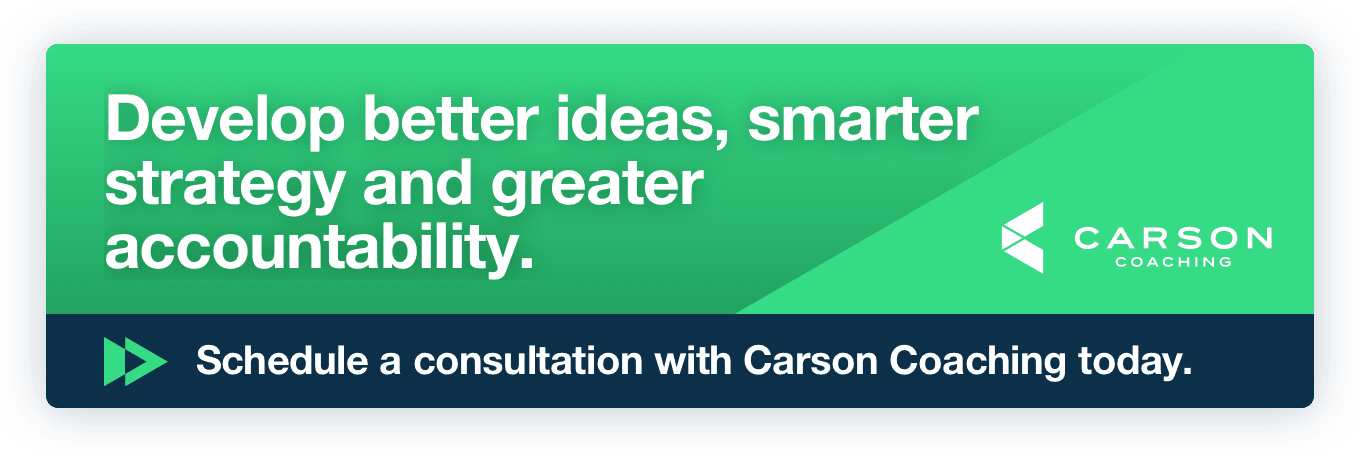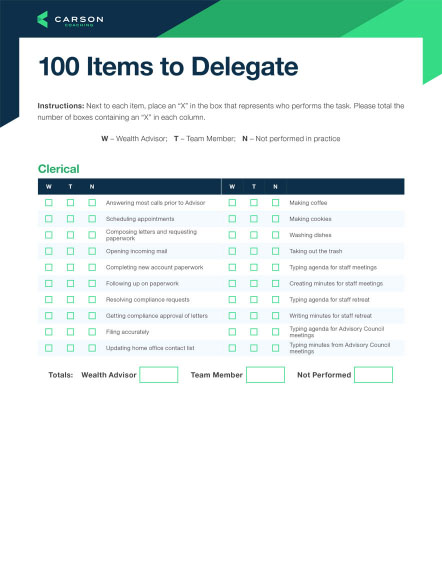The tangible value to your business that comes with practicing acknowledgment – with establishing a connection and trust with others – is easy to overlook. And it’s far underestimated by many.
I’m not talking about the internal process of acknowledging to yourself what your team has accomplished or what they mean to you. I’m talking about active signals of acknowledgment to others in your firm that engender the kind of good vibes and trust that make the strongest businesses really hum.
Here’s what I mean. Think of a friend or family member you don’t talk to very much, but you know they’re there, they care about you, and you care about them. There’s no question that you could pick up the phone any time in a crisis, and they would answer the call. Or maybe you have a neighbor across the way who waves every day. You don’t know them very well and don’t talk to them very much, but you know they’re there – they wave, and you wave back.
How do those connections make you feel? They probably make you feel content and more confident in your surroundings. Maybe they give you a sense of ease and connectedness.
The power of being connected to people is an intrinsic need. The people in your firm need it, too.
Think of the people on your team – those who ultimately make you and the rest of the team successful. How do you want them to feel? You probably want them to feel at ease, to feel motivated and happy to come to work every day. That your firm is a great place to work. You want them to feel confident they can bring their whole selves to the office, that the culture is one where people work well together, and that it’s easy to work with you.
How Strong is Your “Acknowledgment Factor”?
So, how are you doing with actively acknowledging other people? What is the general vibe among employees when you’re around? How do you feel when you’re around them? Maybe you’re doing really well, maybe you’re not sure, or maybe you’re not doing well and you know it. It starts with awareness.
Nearly everyone can improve their odds for better business output by amping up their “acknowledgment factor.” Consider a self-assessment. Think of the most frequent communication methods used to interact: instant messages, emails, meetings, bumping into someone in the hallway. How do people generally react to you? How do they behave in your presence? How do you observe yourself reacting to them?
Read more: How Business Leaders Can Repay the Pandemic ‘Debt’ to Their Teams And Address Burnout
Look for Signs
For example, maybe you get an email every week from someone reporting what they did that week, and you might be thinking to yourself, “Why am I getting this email? OK, great, whatever.” Do you stop and reply, “Thanks for the update, great job!” or do you do nothing because you don’t need it, didn’t ask for it, aren’t sure what the purpose is, and move on?
Or maybe when someone stands in the doorway or pings you once a day about nothing in particular. What’s your reaction? Do you pause and turn away wondering what they want? Or do you engage them: “So how are you doing today, Sherrie? We haven’t chatted in a while. What’s new?”
For a moment, put aside the advice about guarding your time and not letting people interrupt you often. There is a balance here. These are examples of bids for your attention and acknowledgment. This is observable evidence – once you become aware of it – of the human desire for connection and feeling a sense of belonging, which engenders a feeling of trust.
Steps You Can Take
When people feel connected, and that their manager – you – is approachable, certain outcomes are likely to follow. Ideas flow, news flows, updates flow, comfort level with associates tends to be better. Team members are more like to be more confident and more productive as a result. No one sits on things, unsure of what your opinion or reaction might be.
Especially if you lead the firm, people want to feel connected to you, and there are relatively simple ways you can score more connection points with your team. If they’re waving every day, in some way, and most times you send some sort of wave back – boom, the magic unfolds.
For example, maybe you have a tendency to lean on one-way communication when explaining action steps. Consider asking for opinions, too. “Does this make sense to everyone? What do you think?”
Read more: What Thriving Advisors Understand: You’re in the Emotions Business
Be open to and acknowledge their feedback. “Thank you, I think that’s an excellent point.” Or “tell me more” – you never know what jewel of an idea might surface once you open the door.
Most importantly, be sure to respond, “Thank you for sharing that. I really appreciate it.” That’s the big thing: the “thank you” for their gesture, no matter what you thought of their idea. That acknowledgment alone is more valuable long-term than the idea that they just presented.
Quick Start – Take it Up a Notch Today
If you’re in a one-on-one meeting with someone you trust, consider asking for feedback: “I’m trying to improve on a few things. I want to make sure I’m connecting with people in the office. That I’m open and that I communicate well. Do you think I’m good to work with? Do you think I’m a good boss?”
You might receive some surprising comments – be ready for that. This type of feedback loop helps you improve. And acknowledging that person and their feedback builds trust.
The bottom line is, as a leader, you can single-handedly improve the culture of your firm when you leverage the power of personally acknowledging others. You implicitly improve interpersonal relationships at all levels of the organization, which encourages two-way communication and inspires creativity and engagement among all employees.
Make It Stick
Consider making a few minor changes to your habits and thinking about what motivates you to try new approaches. Some people put a reminder on their mobile device or have a poster in their office to start their day with a few key guiding principles. Make sure one of your guiding principles puts people first and that you authentically engage with them regularly.
Harness the power of acknowledgment. I predict you will experience measurable results in culture, attitude, motivation and productivity.



